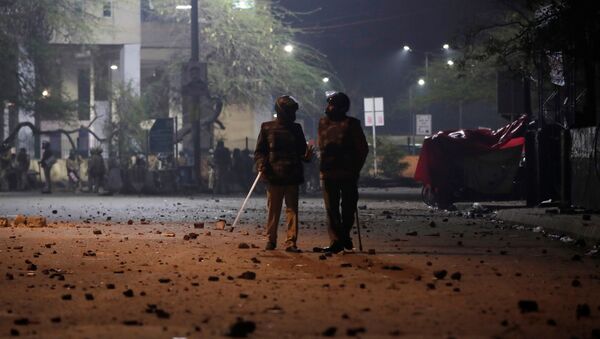The actor on Tuesday announced that his association with the long-running TV show “Savdhaan India” (Beware India), a crime thriller has ended following his participation in protests against the new Citizenship Law. He also said it’s a very small price to pay for speaking out in favour of students.
"And, my stint with ‘Savdhaan India’ has ended," Sushant wrote.
Commenting on his post, a user wondered whether it was the "price" he paid for "speaking the truth".
To this, the actor said, "A very small price my friend. Otherwise, how will you face Bhagat Singh, Sukhdev and Rajguru?"
And, my stint with Savdhaan India has ended.
— सुशांत सिंह sushant singh سوشانت سنگھ (@sushant_says) December 16, 2019
Sushant was citing his role in Rajkumar Santoshi's 2002 film “The Legend of Bhagat Singh”, in which he had portrayed freedom fighter Sukhdev alongside Ajay Devgan's as Bhagat Singh and D Santosh as Rajguru. Radical Indian freedom fighters Sukhdev, Bhagat Singh and Rajuguru were hanged by the British in 1931.
The actor was the host of the crime thriller since 2011. The show deals with shocking crime stories inspired by real-life events. The show mainly focuses on stories in which justice was delivered.
The amended Citizenship Act grants Indian nationality to Buddhists, Christians, Hindus, Jains, Sikhs, and Parsis who faced persecution in Afghanistan, Pakistan, and Bangladesh and migrated to India before 2015.
The Law, however, contentiously does not grant citizenship to Muslims arriving from these three neighbouring countries – something which protesters believe violates the Indian Constitution




